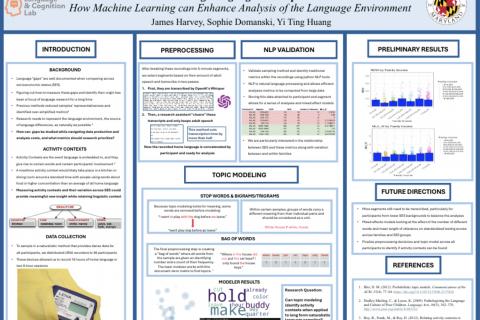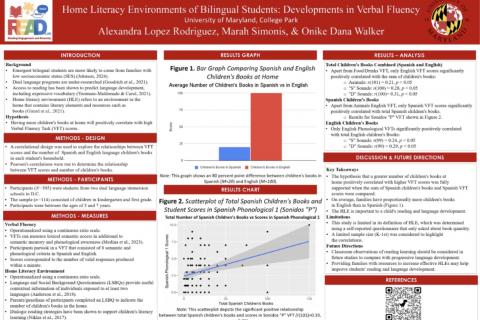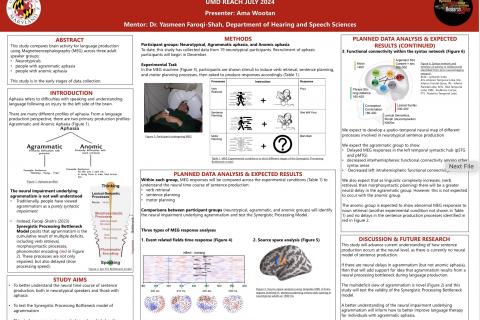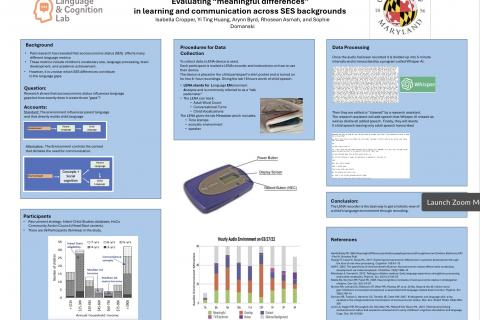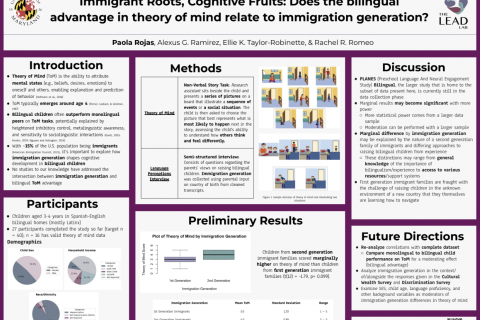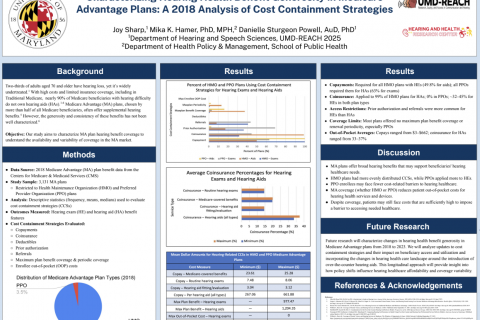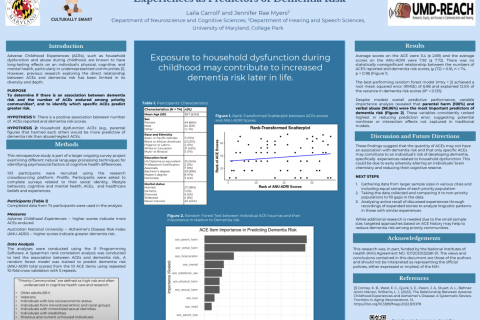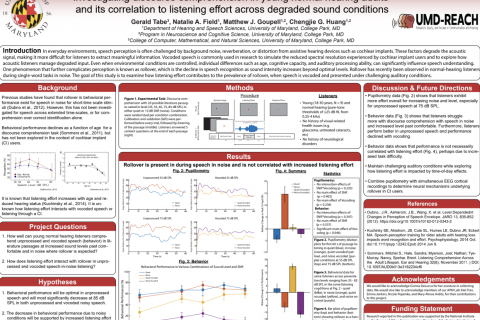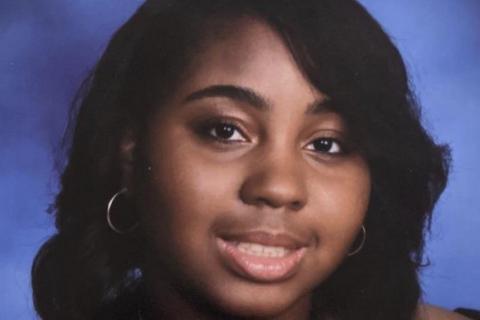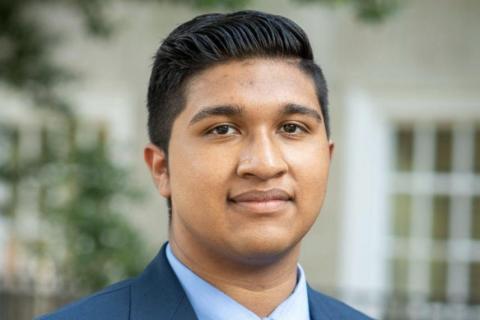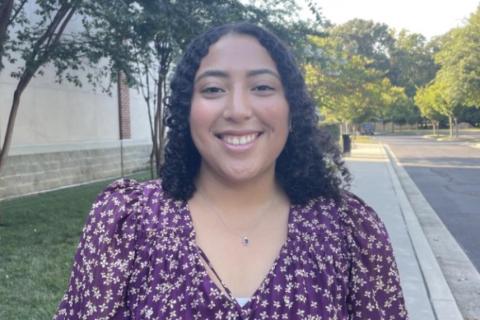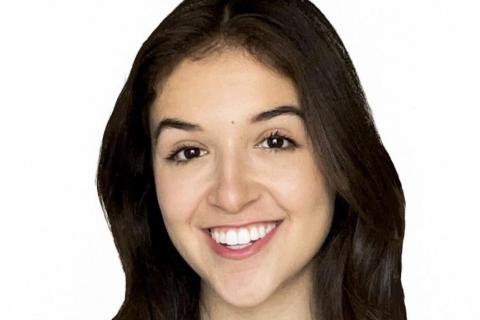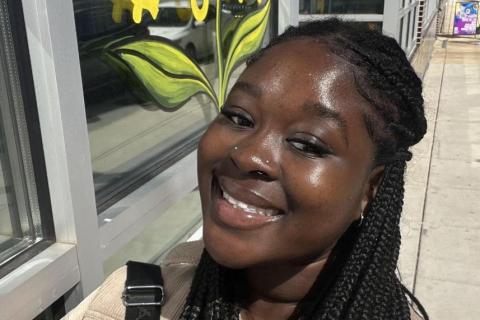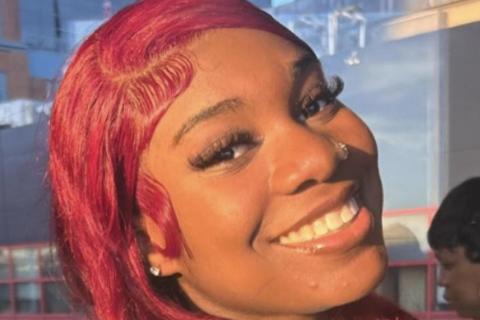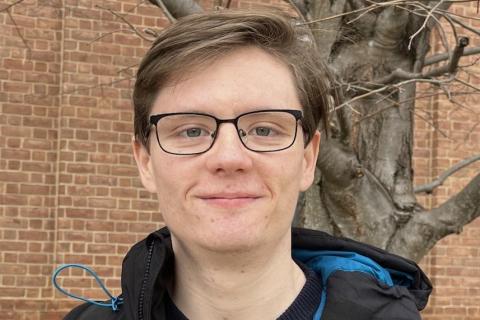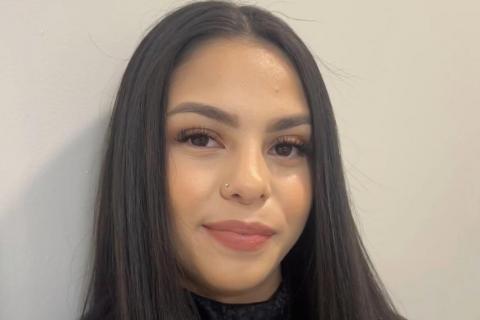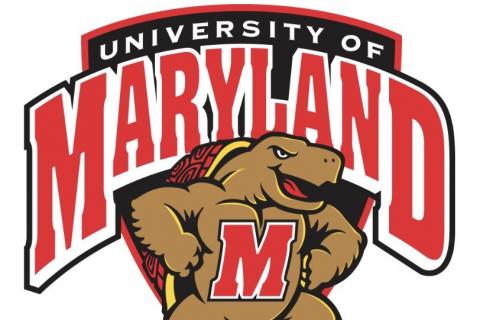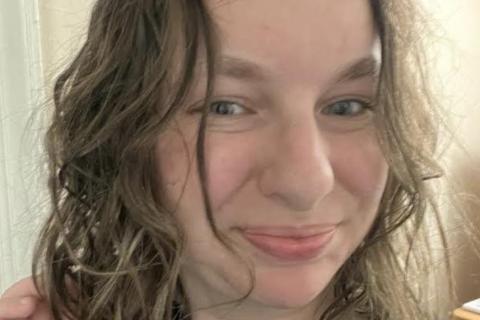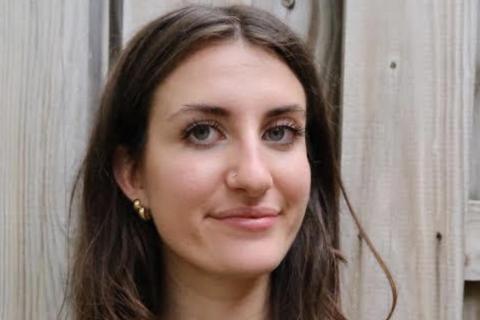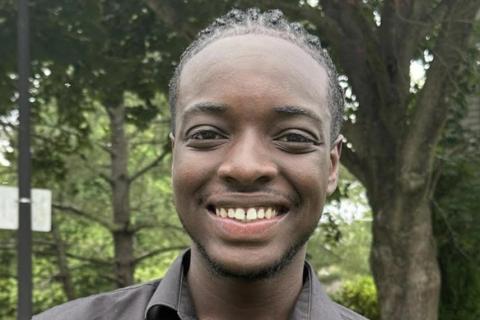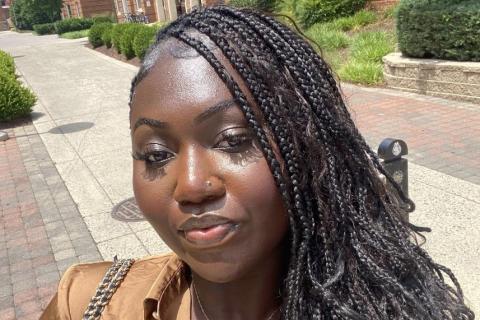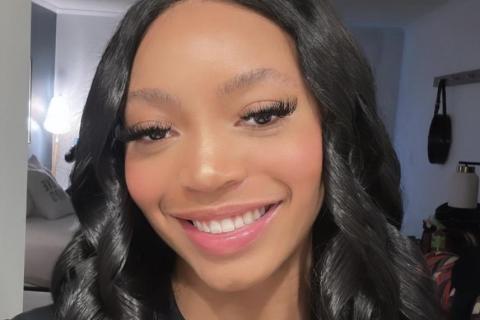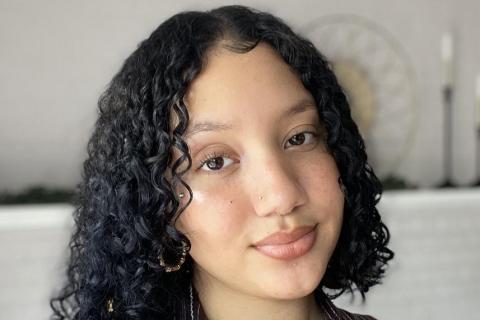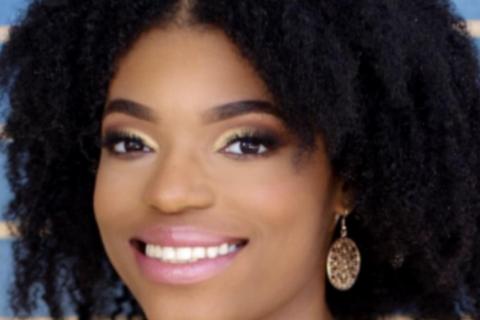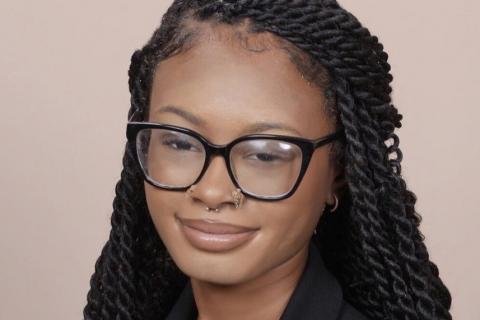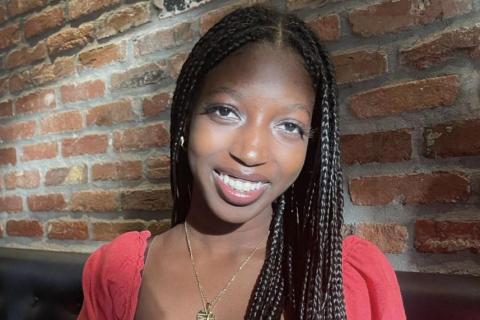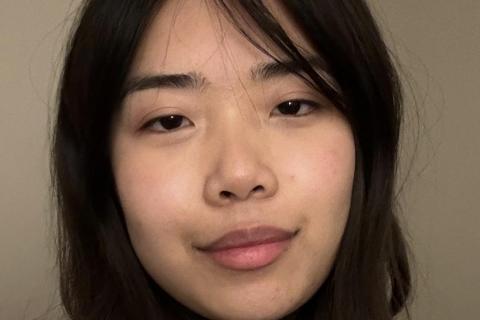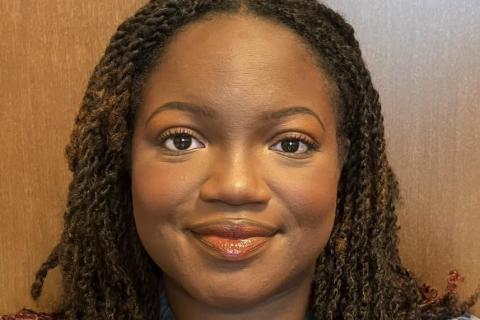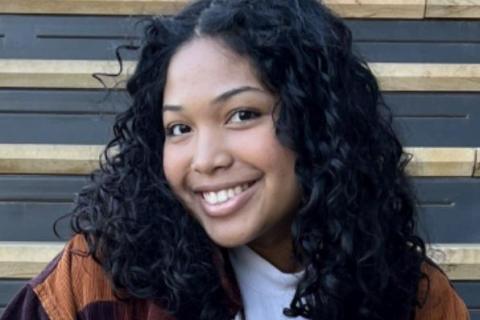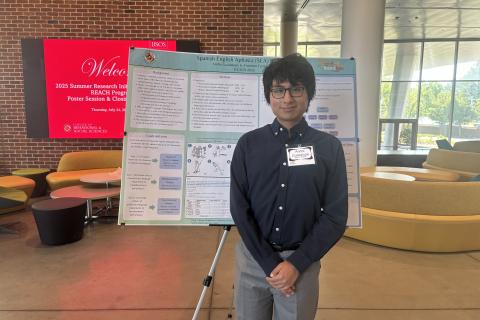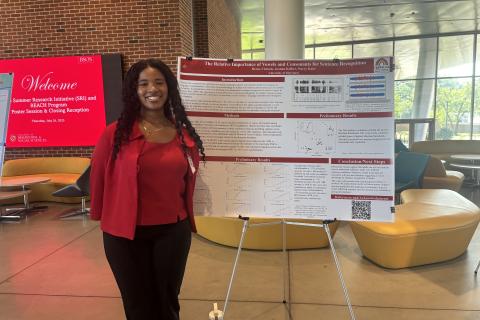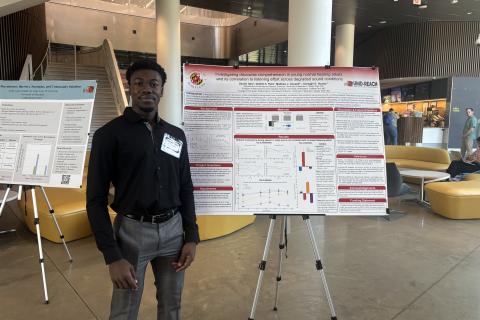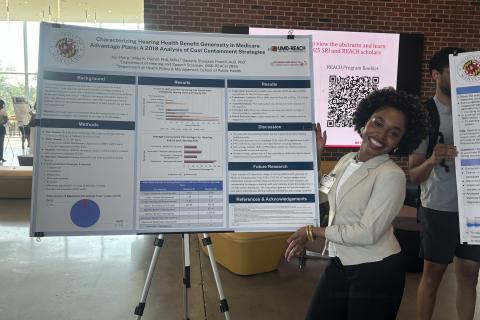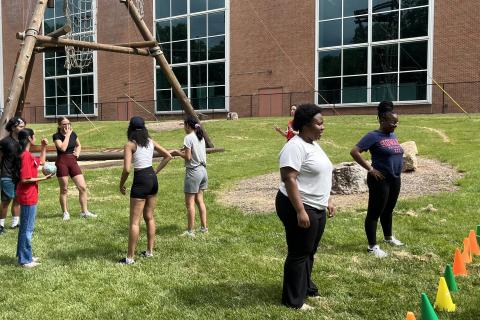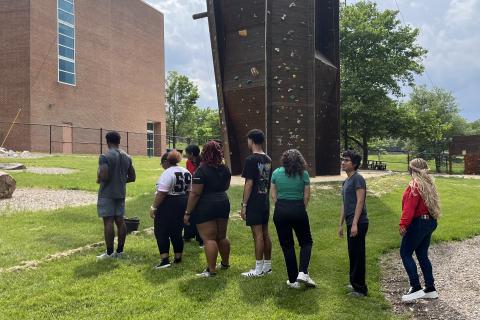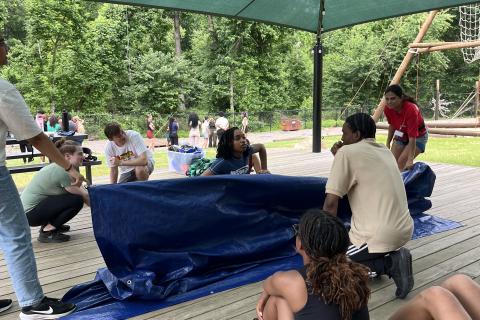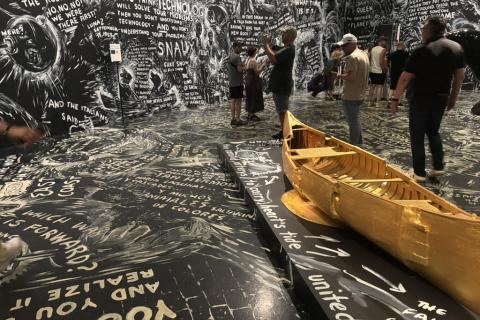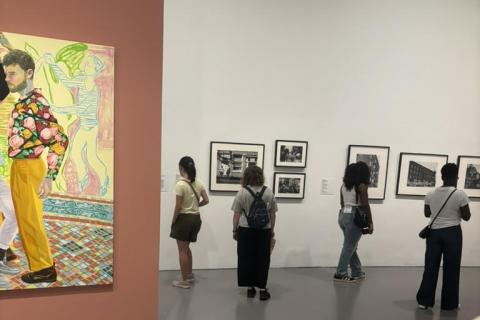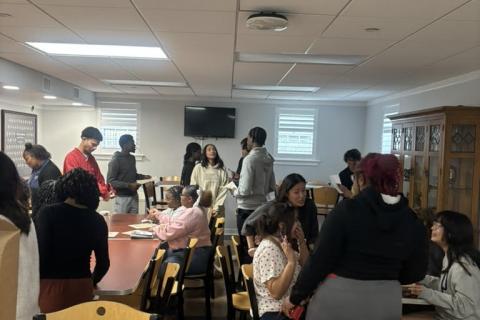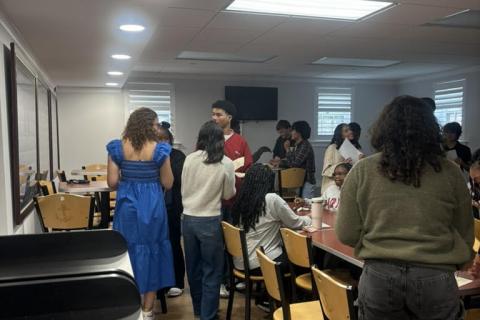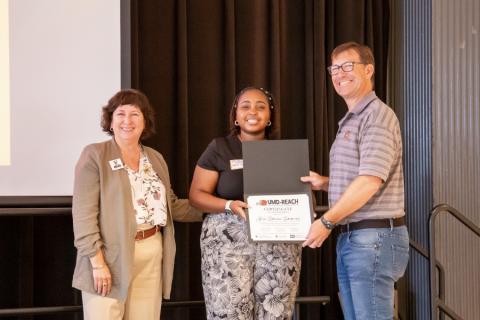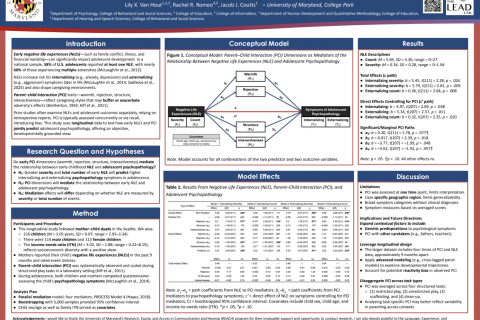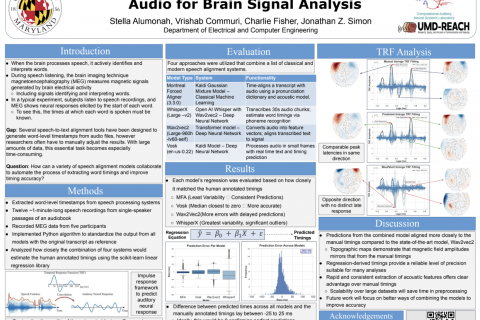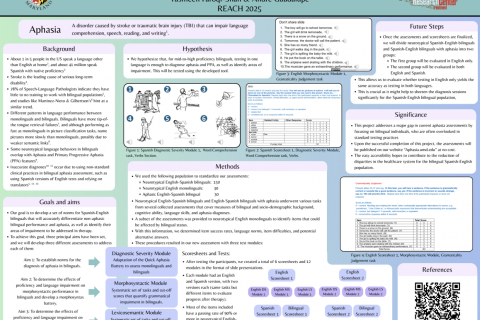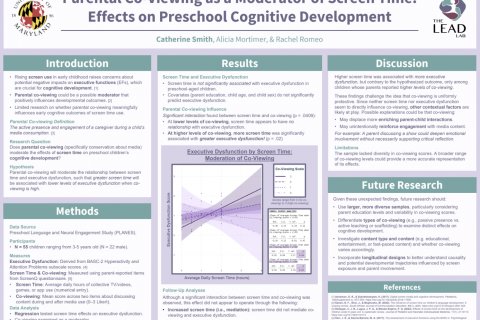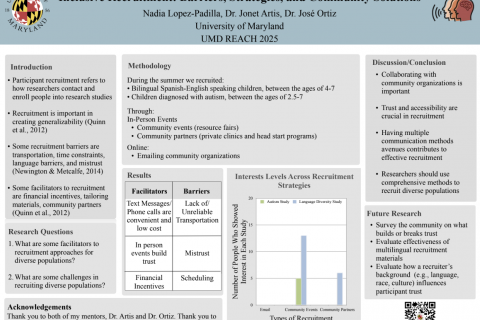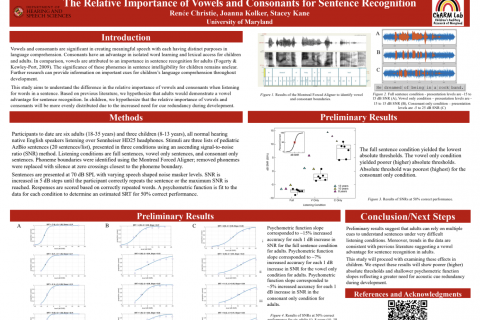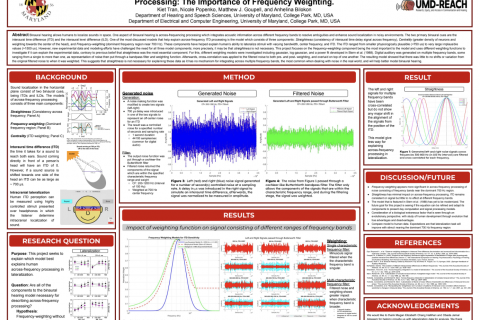
For questions, please email UMD-REACH [at] umd.edu.
What is REACH?
UMD-REACH (Research Equity and Access in Communication and Hearing) is a program designed to address the critical need to increase ethnic, racial, and socioeconomic diversity in the field of communication sciences and disorders. To that end, we aim to provide under-represented undergraduate students the opportunity to participate in cutting-edge research in labs in a broad range of departments including Departments of Hearing and Speech Sciences, Electrical and Computer Engineering, Linguistics, Psychology, Human Development and Quantitative Methodology, Special Education, and Biology. REACH is supported by the College of Behavioral and Social Sciences, the University of Maryland Office for the Vice President for Research, and the National Institute of Deafness and Communication Disorders within the National Institutes of Health.
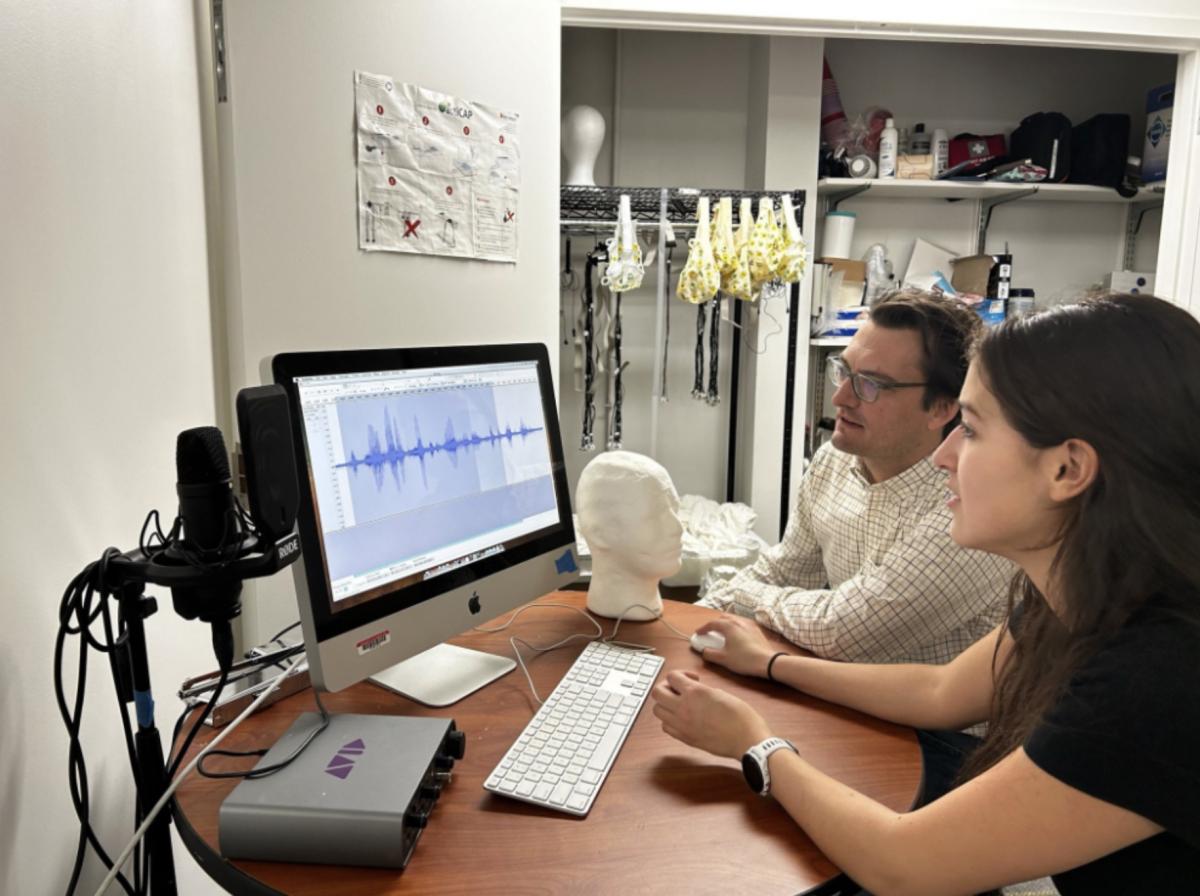
Students will:
-
Participate in labs 10 hrs/week during the academic year, and full-time (40 hrs/week) for 10 weeks during the summer
-
Receive wages ($15/hour) and summer housing to allow them the time to commit to the program.
-
Receive mentorship from both faculty members as well as current graduate or doctoral students.
-
Receive help in applying to higher education programs as well as learn about the application process.
We recognize barriers that may prevent individuals from participating in lab research. Many students face the burden of financial instability and are unable to devote the time to lab work because they are working many hours a week to support their education.
To help students overcome these barriers, REACH provides a year-long paid training program to increase lab participation among underrepresented undergraduate students.
We hope our program can serve as a model to other institutions so that we will develop a better understanding of communication impairments across diverse populations.
If you have any questions please email us at umd-reach [at] umd.edu
Application Information:
UMD-REACH (Research Equity and Access in Communication and Hearing) is designed to address the critical need to increase diversity in the field of communication sciences and disorders. We are particularly interested in training students who are considering going into research-oriented fields or considering a career in speech and hearing, and who come from groups underrepresented in science. This includes students from groups who are underrepresented on the basis of race, ethnicity, disability, or those students coming from first-generation and/or low-income backgrounds.
This program provides under-represented undergraduate students with the opportunity to participate in cutting-edge research and receive mentorship and professional development training via a year-long paid training program. This provides a rich environment for teaching and learning from each other.
If you have any questions please email us at umd-reach [at] umd.edu
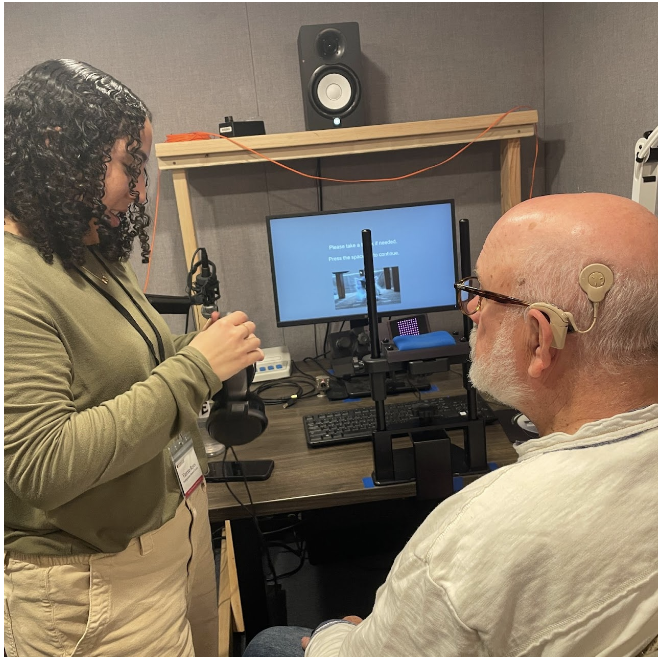
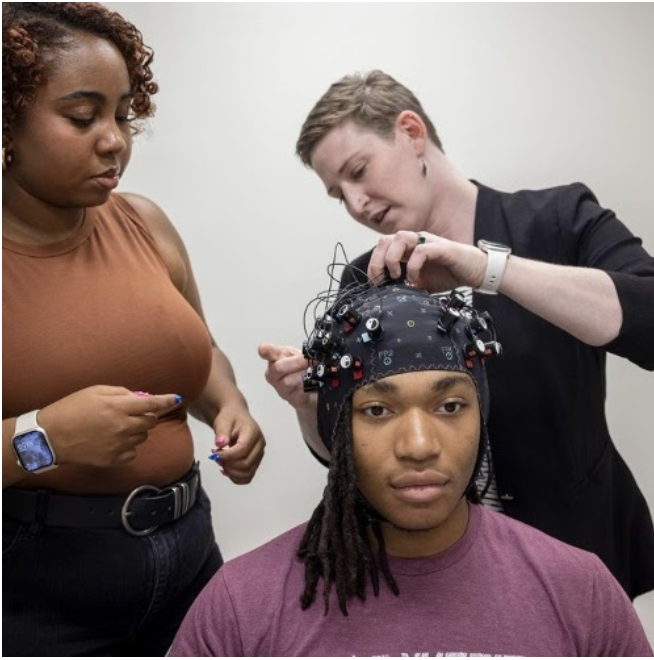
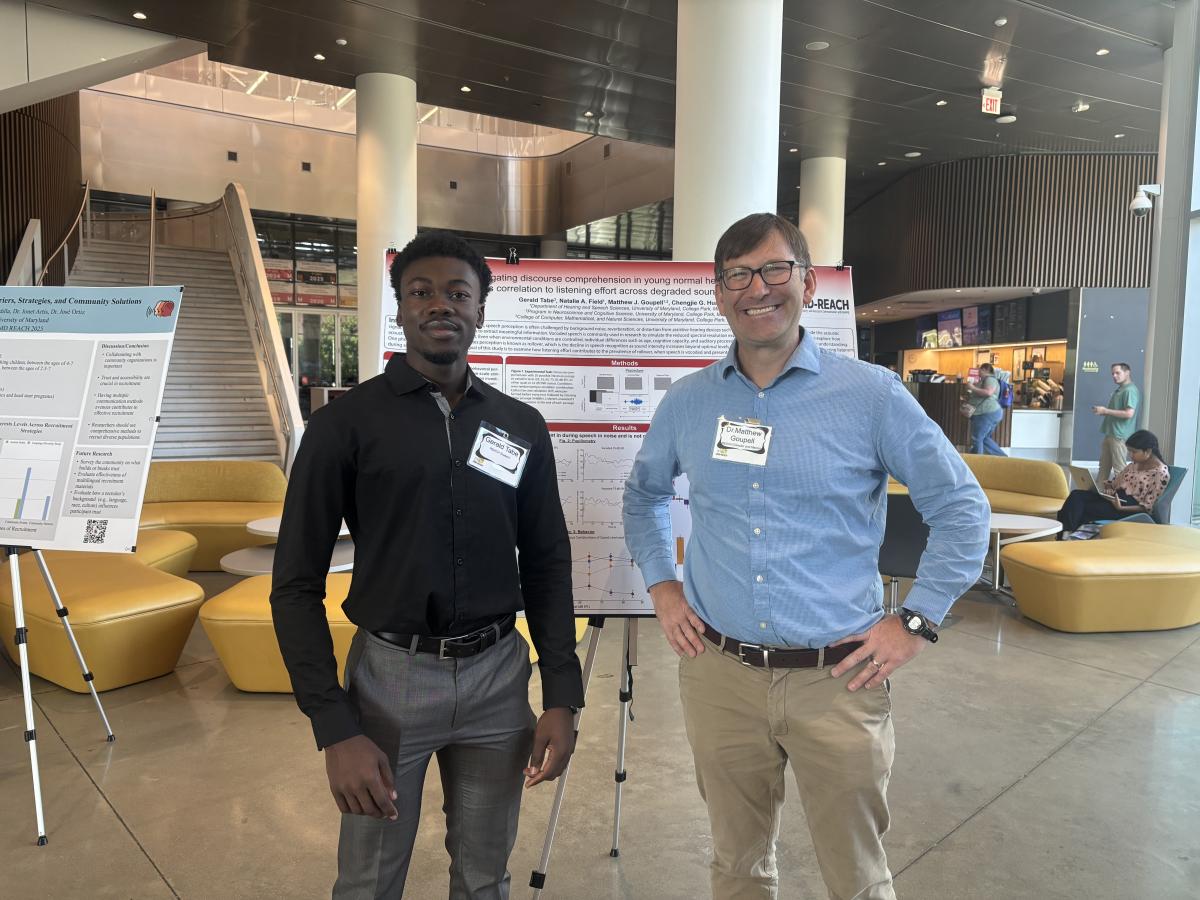
By participating in REACH, you will be able to:
- Increase your knowledge on research & communication science & disorders while adding a competitive opportunity to your resume.
- Learn about the wide range of career opportunities in research in communication sciences and disorders, and how to apply and get into graduate programs to support future training
- Gain generalizable skills through hands-on laboratory experience, including skills for asking good questions, data analysis, writing reports, and communicating to diverse audiences
- Access lectures, workshops, and professional development to navigate collaborative work settings, project based planning, and career decision making.
- Develop mentoring relationships and networking opportunities with faculty and graduate and undergraduate students to build supportive, intellectual communities.
Faculty and Labs:
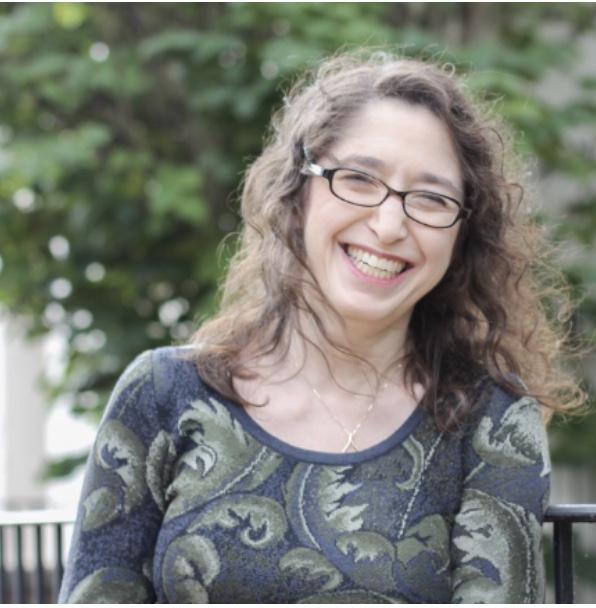
Dr. Rochelle Newman is one of the directors of REACH, as well as the director of the Language Development Lab (LDEV), the Brain Injury and Language Development Lab (BILD), and the Canine Perception Lab. She is also the former Hearing and Speech Science (HESP) Department Chair. LDEV focuses on how perception of language changes with development. The BILD Lab focuses on how concussions impact language. The Canine Perception studies dogs and looks to see how our canine companions understand spoken commands.
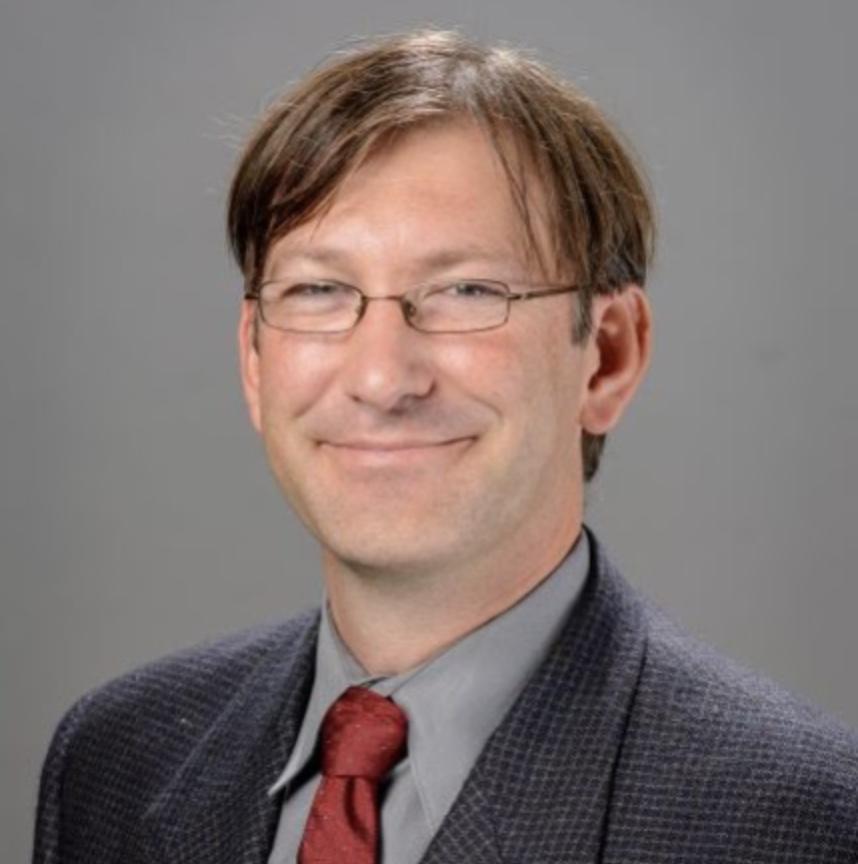
Dr. Matt Goupell is one of the directors of the REACH program. He also is the director of the Auditory Perception and Modeling Lab. This lab currently focuses on the benefits of having two cochlear implants, how new cochlear implant processing strategies might improve speech understanding in noise and sound localization, and how natural aging impacts the brain's ability to encode and interpret sound across time.
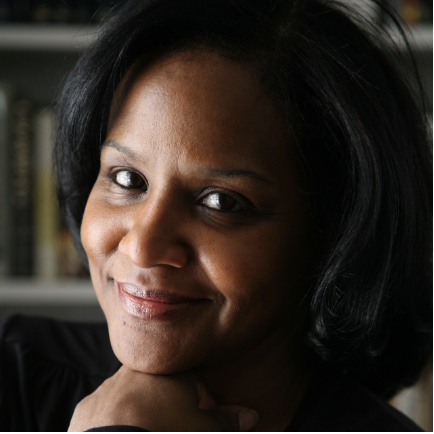
Carol Espy-Wilson is the head of the Speech Communication Lab. Research in this lab combines knowledge of digital signal processing, speech science, linguistics, acoustic phonetics and machine learning to conduct interdisciplinary research in several speech-related areas.
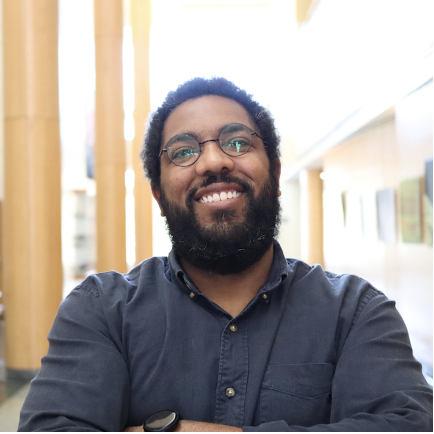
Nik Francis is the Principal Investigator for the Francis Lab within the Biology Department. The Francis lab aims to clarify the neural mechanisms of listening and advance our understanding of how brain function relates to behavior.
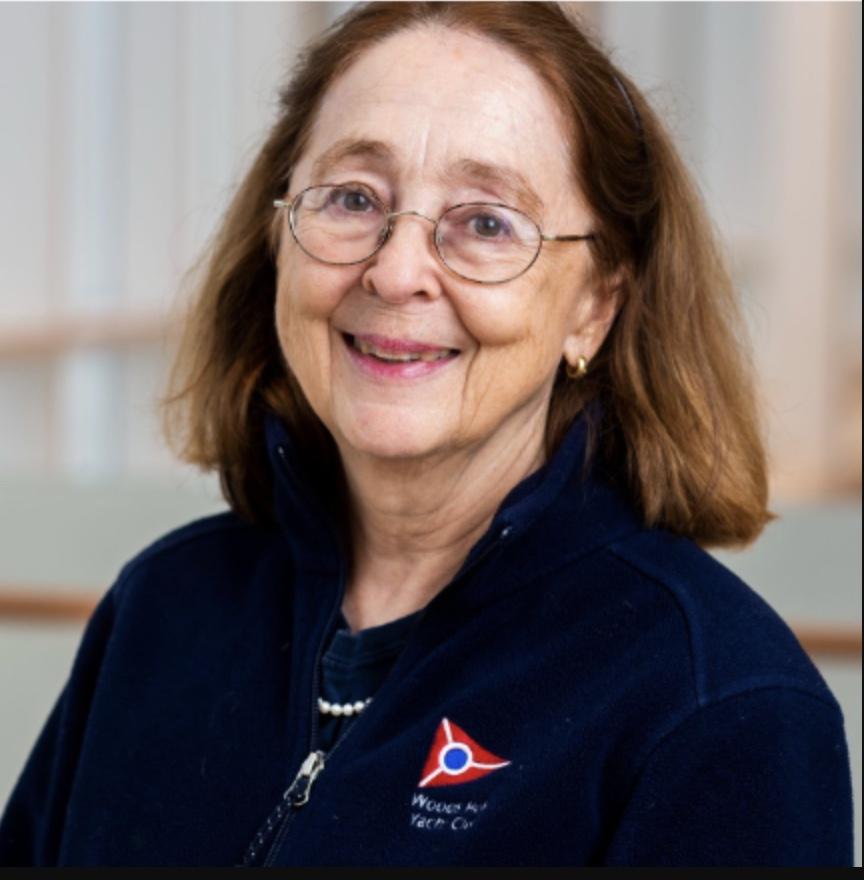
Catherine Carr is in charge of the Carr Lab within the Biology Department. This lab focuses on how the brain uses time differences (ITDs) between the two ears to localize sound. The Carr Lab studies the neural circuits underlying the computation of ITDs in barn owls and other reptiles.
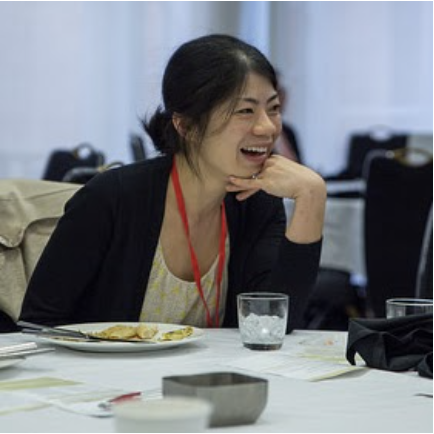
Yi Ting Huang is the head of the Language and Cognition Laboratory. This lab focuses on answering multiple questions including, "How do we close opportunity gaps?", "Can we predict effective interventions?", and "How does society address variable language outcomes?"
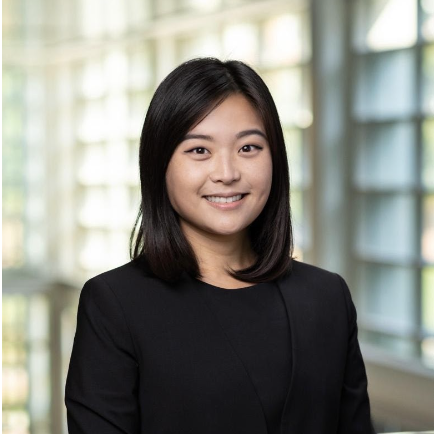
Veronica Kang is in charge of the Autism, Family, Culture, and Communication Education Lab (ACCEL Lab). The ACCEL lab works with children, families, and practitioners in early intervention. The ACCEL lab focuses on early childhood education, special education, applied behavior analysis, and related fields.
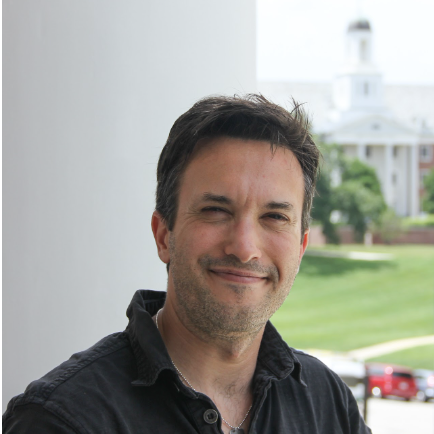
Dr. Jared Novick studies how adults (and sometimes children) process and understand language in real time, as it unfolds moment by moment in the Cognition and Language Processing Lab.
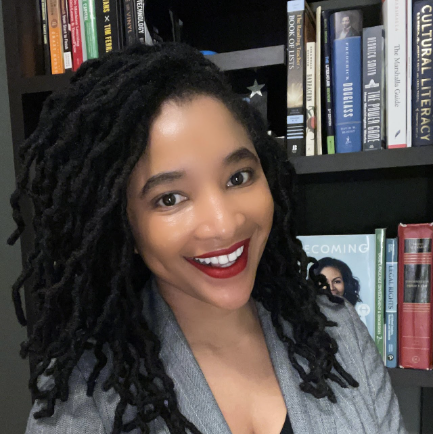
Dr. Overton is one of the REACH career mentors as well as an Assistant Clinical Professor and the LEAP Preschool Director. Learn more about Dr. Overton here!
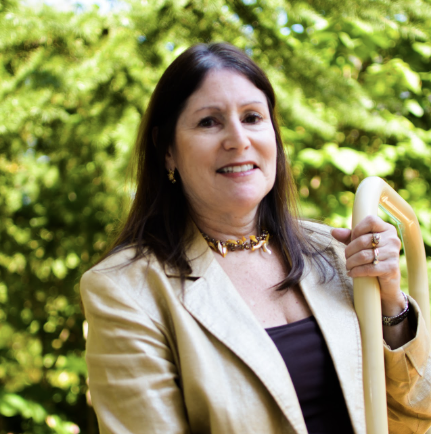
Dr. Ratner studies the development of fluent speech production and the acquisition of language in the Language Fluency Laboratory.
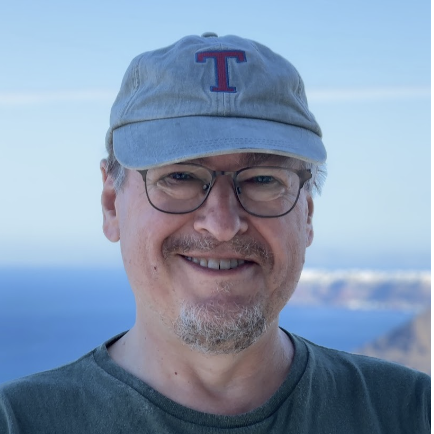
Jonathon Simon is the co-director of the Computational Sensorimotor Systems Lab. This interdisciplinary lab studies how the brain processes speech and also how the brain processes different aspects of speech differently in different parts of the brain.
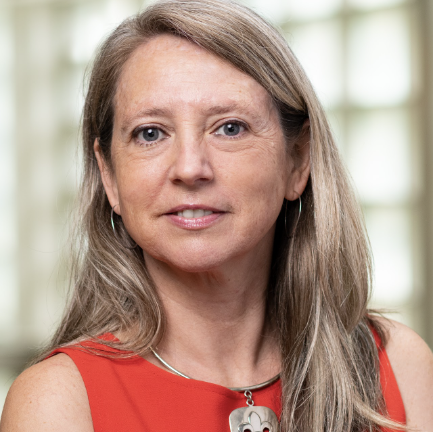
Dr. Ana Taboada Barber leads the Reading Engagement and Diversity (READ) Lab. The READ Lab studies how bilingual – and multilingual – children engage their growing minds in reading tasks.
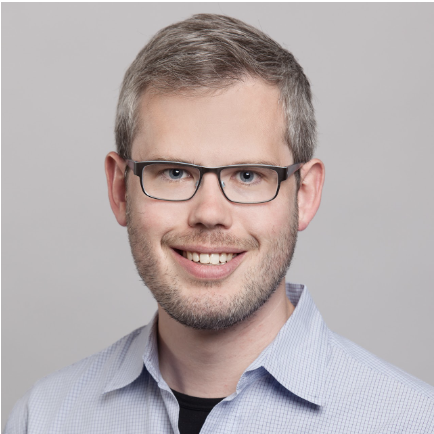
Dr. Butler leads the Cognition and Development Lab where his research focuses on the development and consequences of social learning in early childhood.
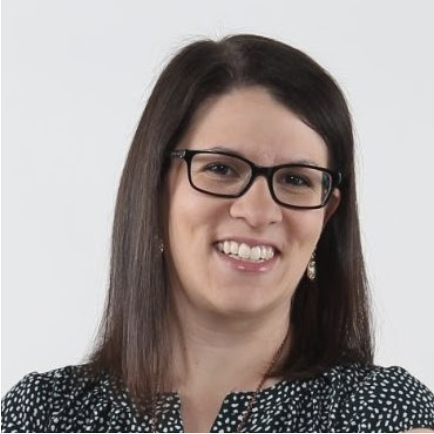
Melissa Caras leads the Caras Lab on campus. It is known that practice can improve our ability to detect, discriminate, and identify sounds. The goal of the Caras Lab is to understand how this transformation, from auditory novice to auditory expert, is implemented in the brain.
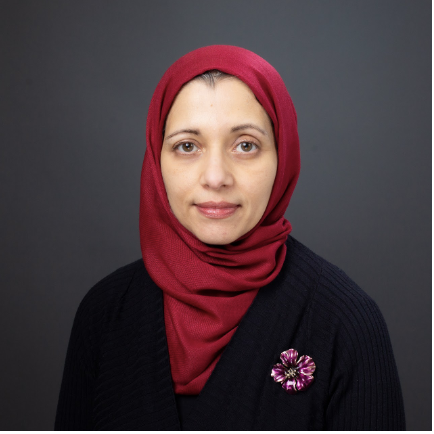
Yasmeen Faroqi-Shah's research focuses on understanding the neural underpinnings of language, with a particular focus on language breakdown following brain injury (aphasia) and bilingualism. Dr. Yasmeen Faroqi-Shah is the principal investigator for the Spanish-English Bilingual Project, as well as for the Aphasia Research Center.
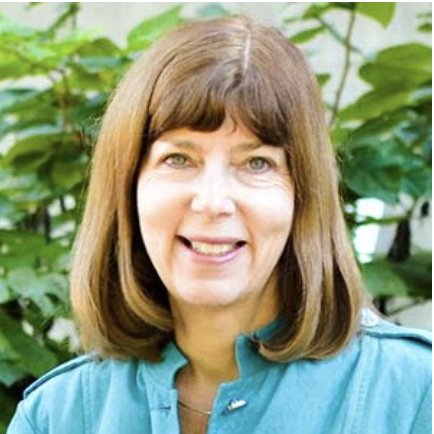
Dr. Sandra Gordon-Salant is the Lab Director of the UMD Hearing Research Lab. The focus of the Hearing Research Lab is to understand the relative contributions of peripheral and central auditory abilities, cognitive capacity, and stimulus characteristics to age-related speech understanding problems.
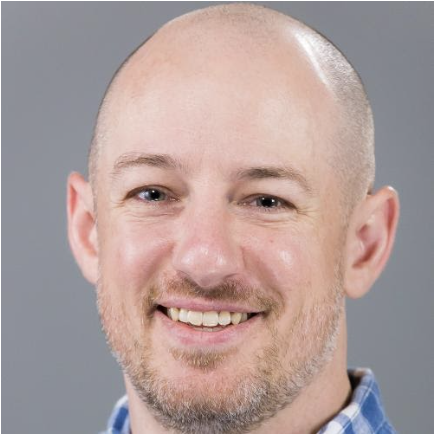
Dr. Hoover leads the Hearing Technology Lab. Research in this lab focuses on hearing aids and related hearing assistive devices as well as values in hearing healthcare, hearing assessment, speech perception in noise, and psychoacoustics.
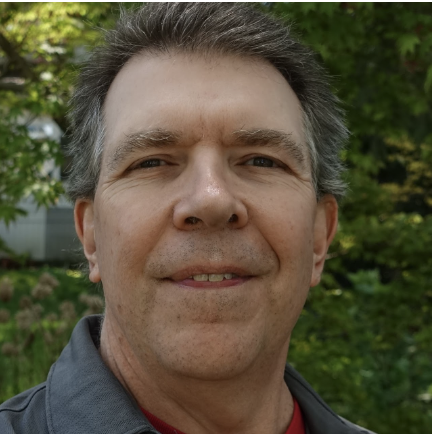
William Idsardi's research is on speech sound systems and how they function as a "mental address system" for words. He and his students do analyses on various languages and investigate speech perception using behavioral experiments and brain imaging (MEG).
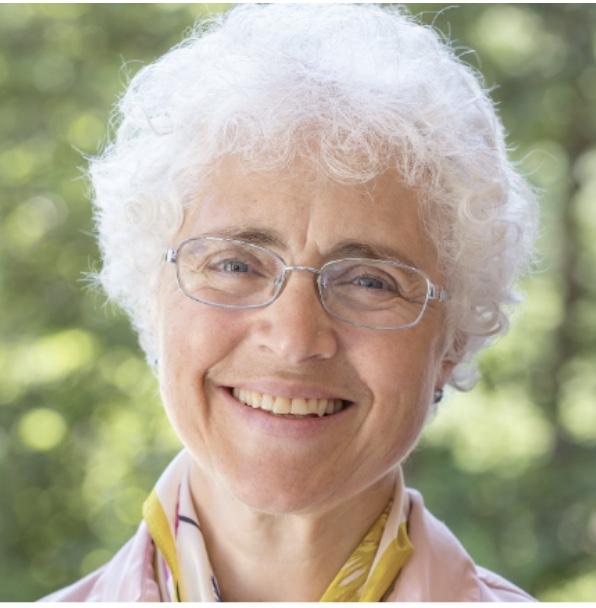
Dr. Samira Anderson is the lab director of the Hearing Brain Lab on campus and is also the Hearing and Speech Science (HESP) Department Chair. The Hearing Brain Lab investigates how the brain processes speech, using behavioral and electrophysiological testing.
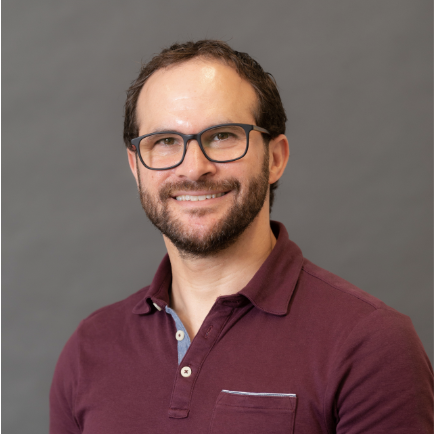
José Ortiz leads the Language Diversity Lab and studies issues related to the identification of communication disorders in bilingual children, technology-assisted language assessment, and culturally responsive treatment approaches.
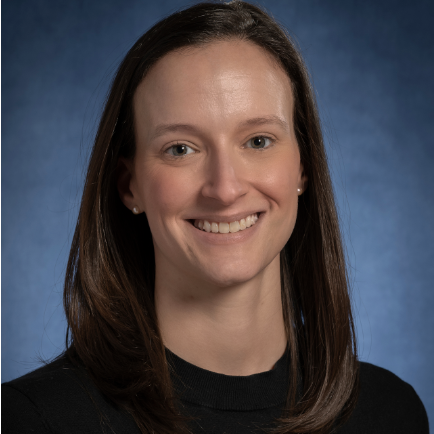
Danielle Powell leads the Hearing and Health Research Center. This research focuses on assisting older adults who are affected by hearing loss.
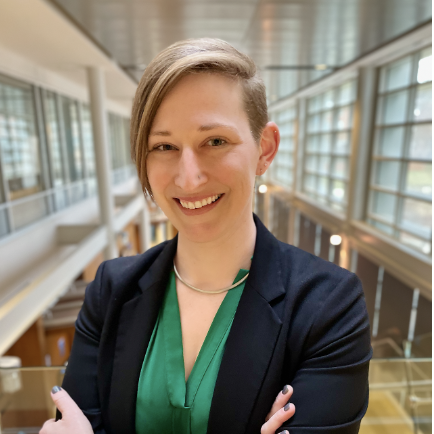
The Language, Experience, and Development (LEAD) Lab is directed by Dr. Rachel Romeo. This lab investigates how children’s early experiences—both favorable and adverse—influence their neural, cognitive, and academic development.
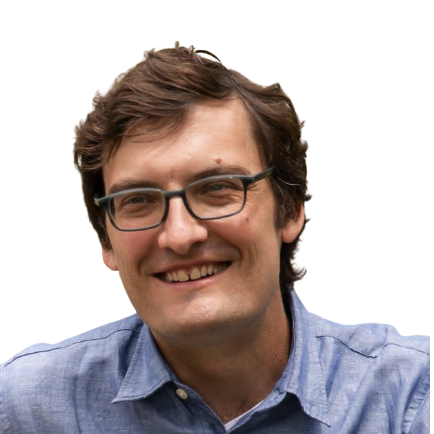
Bob Slevc leads the Language and Music Cognition Lab (LMCL). This lab studies how we process the complex sound and structure characteristic of both language and music.
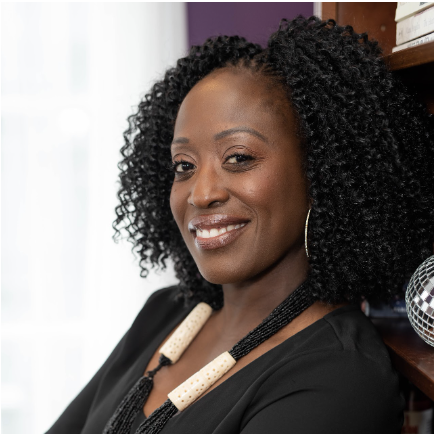
Eliza Thompson is one of the REACH career mentors; she is an SLP and Assistant Clinical Professor in the Dept. of Hearing and Speech Sciences. Learn more about Eliza Thompson here!
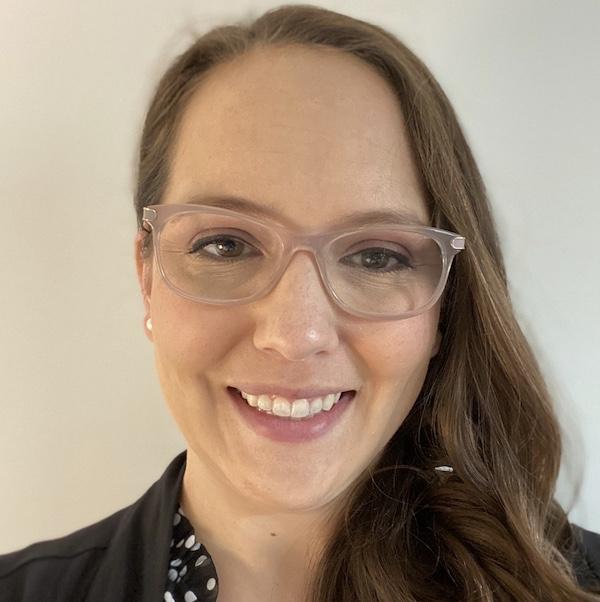
Dr. Kane is running a new lab on campus currently titled, "Kane Lab." Dr. Kane is an audiologist and hearing scientist specializing in pediatric auditory skill development. Her lab studies how children with hearing loss develop skills to navigate complex listening environments, like the classroom. She is also interested in advancing hearing healthcare for children with developmental disabilities. Email Dr. Kane at slgkane [at] umd.edu for more information! Website coming soon!
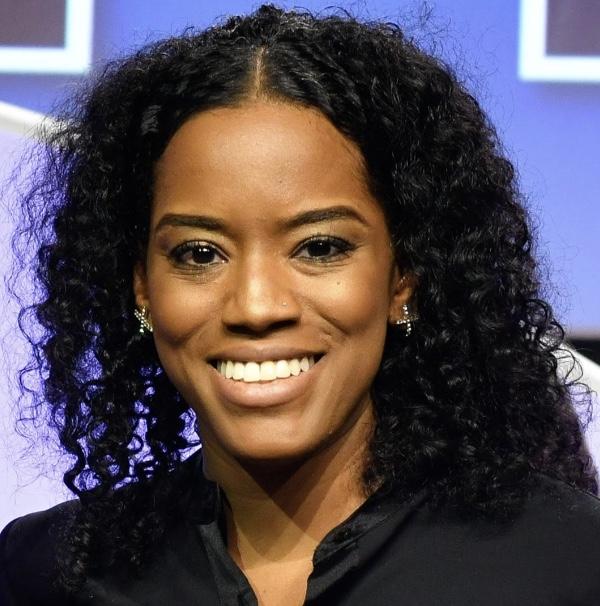
Jennifer Rae Myers is Co-Director of the Culturally SMART. This collaborative lab focuses on multicultural advocacy and communication science research in technology.
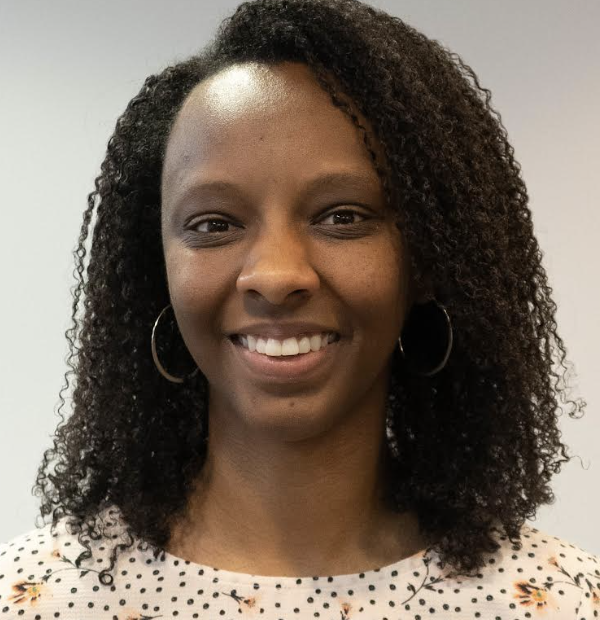
Jonet Artis studies the language development of individuals with neurodevelopmental conditions. Their current study investigates the early receptive language development of autistic children. They aim to determine which measures best help us to know the words autistic children understand. In addition, they are investigating how the language environment of autistic children may vary based on their language skills. Their long-term goal is to inform clinical practices on the most effective assessments and interventions for children who demonstrate language delays and/or language disorders.

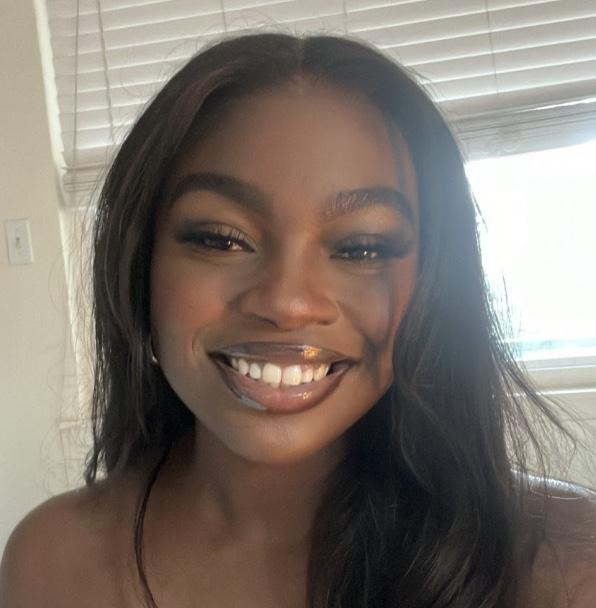
Favour Bright-Agindotan is a graduate assistant for the REACH program. Her position focuses around the mentorship of the REACH students. She is a first year graduate student in the Speech Language Pathology program. She completed her undergraduate studies at the University of Utah where she studied communication sciences and disorders as well as theatre.
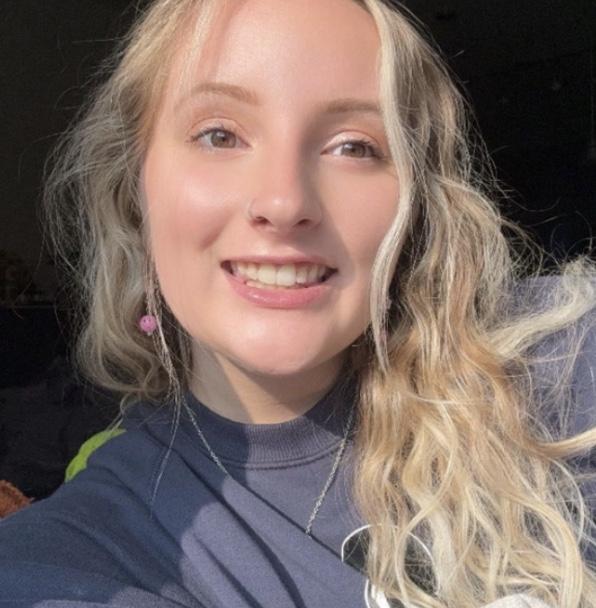
Lexi Stefanic is a graduate assistant for the REACH program. She is currently a first year student in the Speech Language Pathology program. She received her bachelor's degree at the University of Maryland in Hearing & Speech Science. She focuses more on the behind the scenes of REACH and research going on within the program.
Current Students:
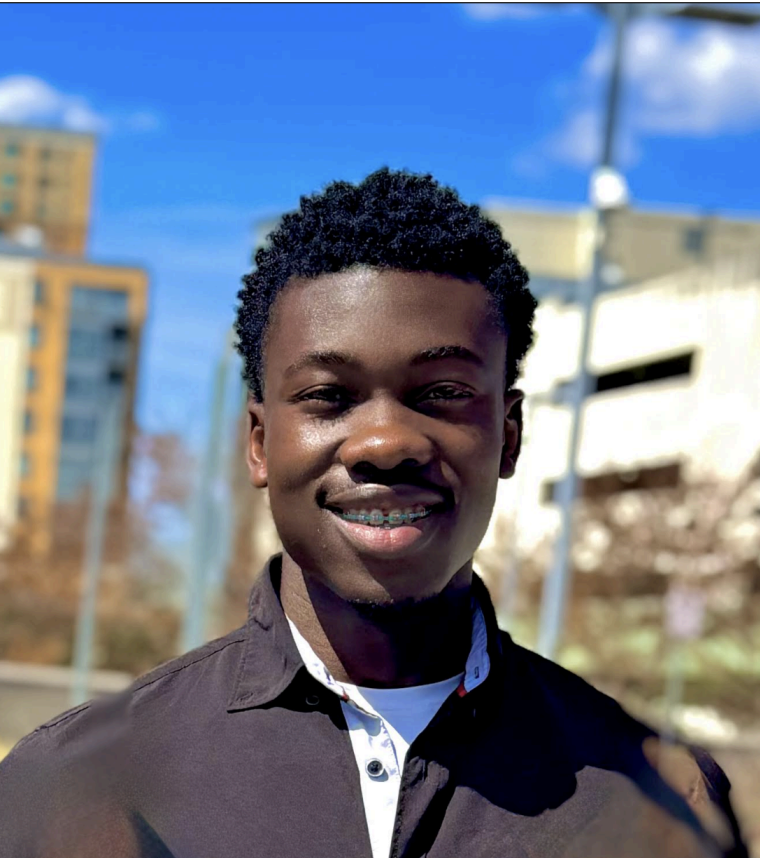
Gerald Tabe is a sophomore neuroscience major attending the University of Maryland, College Park. He is from Waldorf, Maryland and is a member of the CMNS DEI committee and the Maryland Mentor Corps. After graduating, he intends to pursue a career in medicine and someday become a doctor. He plans to specialize in anesthesiology with an open mind for other specialties. Gerald’s primary research interest is to learn how exercise impacts the human brain and mental well-being. He is keen on investigating the effects of both acute bouts and chronic programs of physical activity on brain structure, cognitive functions, and cerebrovascular health. Overall, he is eager to explore how exercise-based interventions can be used to promote cognitive resilience and reduce disparities in brain health, particularly in underserved populations.
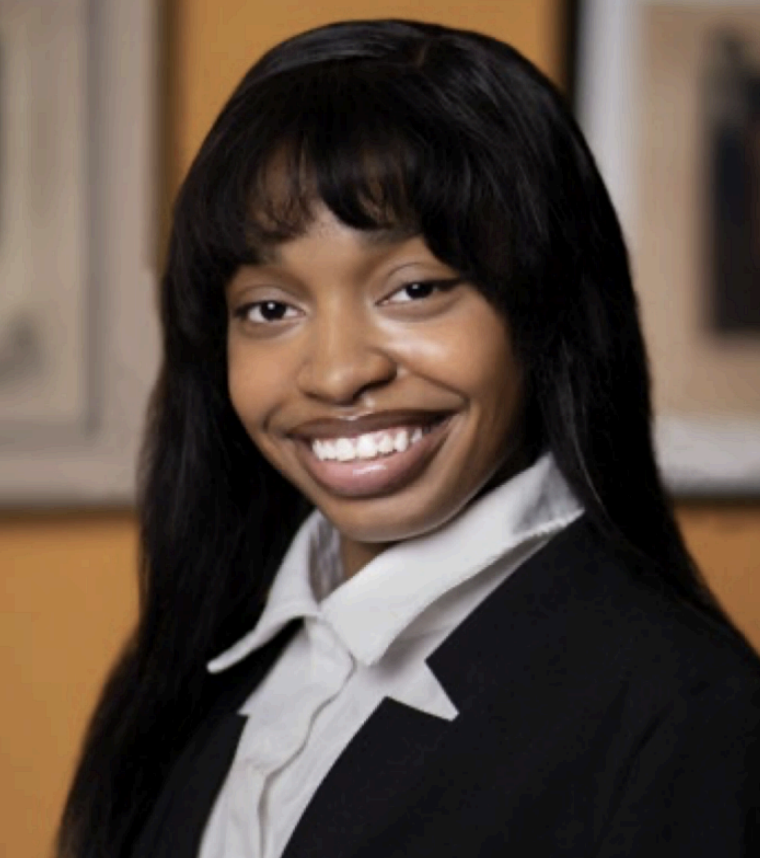
Joy Sharp is a rising junior at the University of Maryland, College Park, majoring in Public Health Science. She is originally from Baltimore, Maryland, where her firsthand experiences navigating an under-resourced healthcare system inspired her strong commitment to advancing health equity. As a Maryland Promise Scholar and a fellow in the University of Maryland Fellows Program with a concentration in Public Health Policy, Joy has cultivated a deep understanding of the challenges faced by underserved populations. Her academic background includes qualitative research that explores health disparities and the role of social determinants in shaping access to healthcare. She is passionate about addressing these barriers to improve outcomes for marginalized communities. Looking ahead, Joy plans to pursue a Master’s degree in Health Administration or Public Health, focusing on health policy and management. Her research interests center on how health insurance and coverage policies impact access to care, particularly for low-income and historically marginalized groups. Additionally, she is dedicated to examining the systemic factors that drive health disparities and influence population health outcomes.
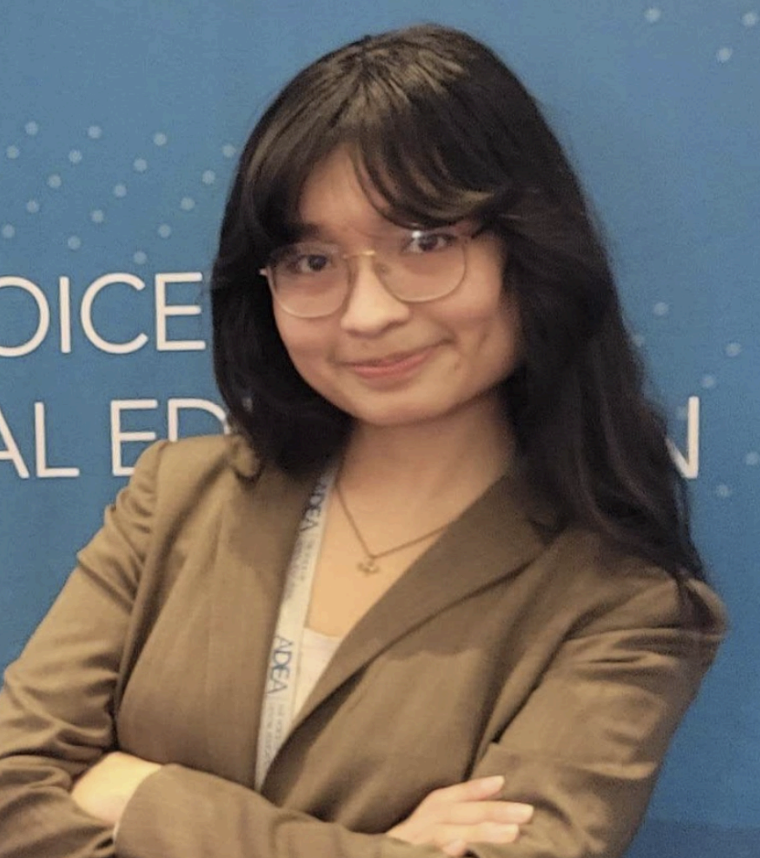
Paola Rojas is a junior double major in Neuroscience and Human Development at the University of Maryland, College Park's Honors College. As a first-generation student of Bolivian descent, her current research interests focus on brain development in young children and exploring how adverse environments can impact the development of key areas and specific functions, notably language development. Following her fascination for almost seven years, Paola has been thoroughly involved with the Montgomery County educational system. From volunteering as a teacher assistant at Title I elementary schools to facilitating French conversations at a French immersion school, her commitment is unwavering. Currently working at the LEAD Lab, she leverages her multilingual skills to create a safe, supportive space for bilingual families in the Bilingual PLANES study. All while maintaining active involvement in various UMD student organizations, including as a team leader for the Latino Student Fund tutoring program guiding 30-40 mentors in their aim to close the achievement gap for Latino students in PG county, and as Vice President of Public Service in the OMSE Sister to Sister Program. Her combined experiences have solidified her goal of pursuing pediatric dentistry while conducting research that bridges neuroscience, child development, and public health
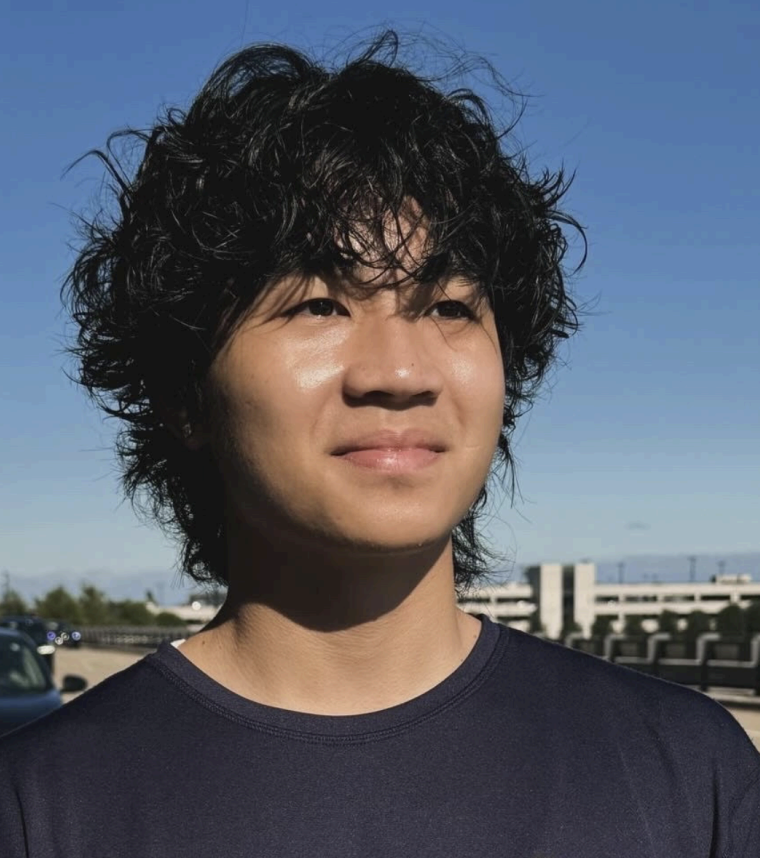
Kiet Tran is a sophomore at the University of Maryland, College Park. He is a Computer Engineering major with areas of research interest including: embedded systems, digital signal processing, digital inequality, and computational neuroscience. His post-graduate goal is to achieve his PhD in Computer Engineering, and throughout his studies, he hopes to work with many professionals and senior developers in his field of study. He has previously worked as a co-project lead for a summer program that teaches youth developing and applying computer science and programming in projects. His career goal is to travel the world and work in communities and countries that suffer with disparities in technology and communication to help bridge the gap and connect the world.
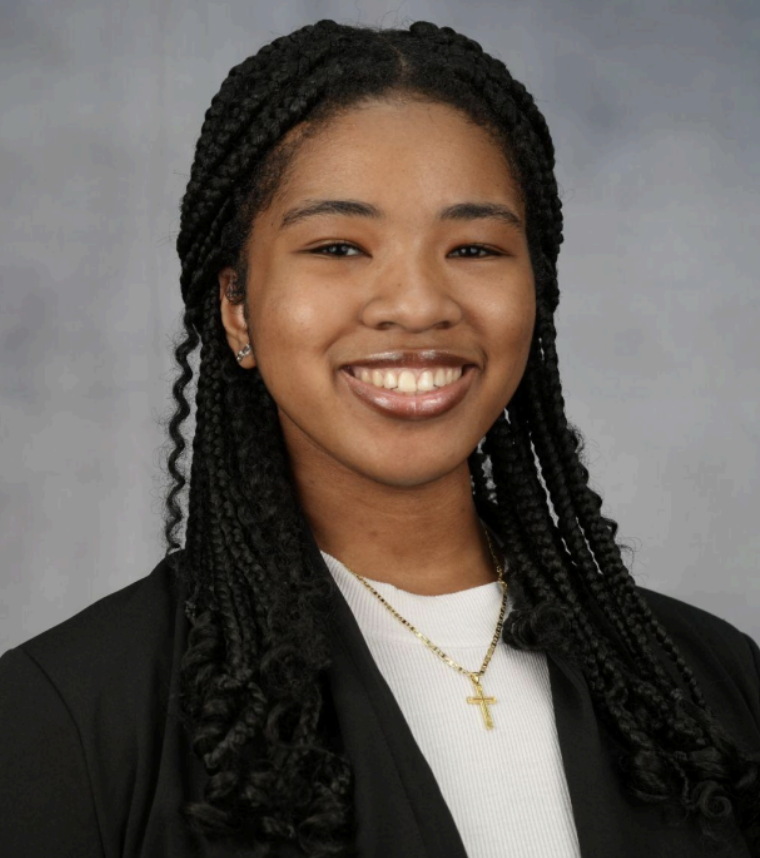
Renée Christie is a sophomore studying psychology at the University of Maryland. At the university, she tutors children through The Every Child Project and is a member of Sister to Sister. She will be mentored by Dr. Kane in the ChARM Lab, where she will be able to expand her research interests in child development and equity in healthcare. In the future, she plans to attend optometry school and specialize in pediatrics.
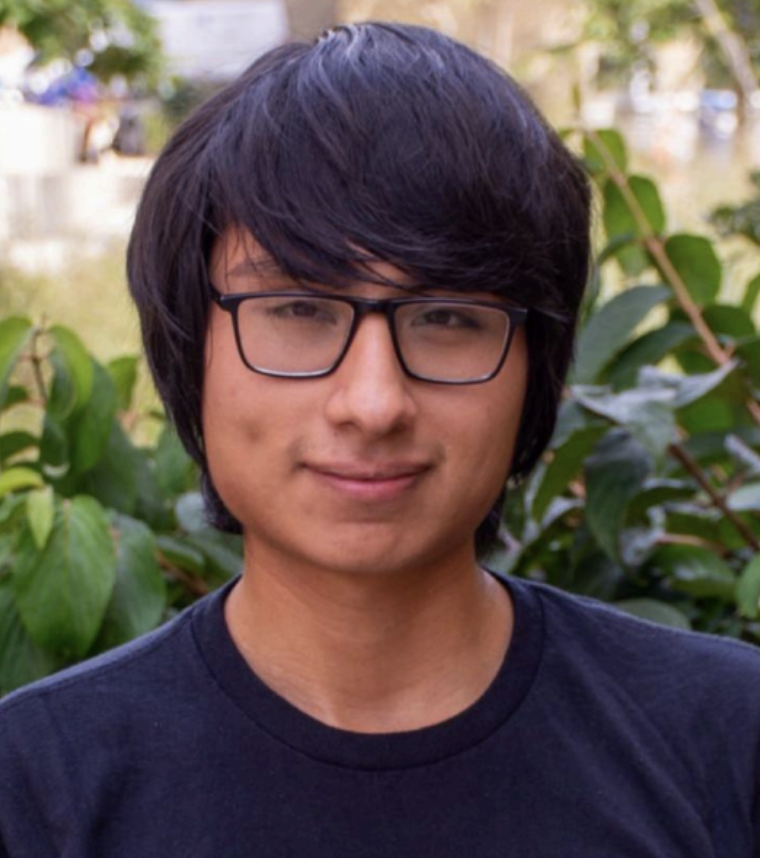
Andre Guadalupe is a rising junior at the University of Maryland, College Park, where he is pursuing a dual degree in Neuroscience and Hearing & Speech Sciences. He transferred from Montgomery College, where he earned the Dr. Harry Harden Jr. Student Excellence Medallion. He also grew up in Peru for most of his life and is fully bilingual in English and Spanish. He is very excited to be mentored by Dr. Yasmeen Faroqi-Shah and to work in her Aphasia and Bilingualism labs, gaining knowledge about speech therapy and research methods. Some of his passions include teaching, learning languages, traveling, performing, and learning, which led him to aim for a Master's degree in Speech-language Pathology after undergrad to serve the bilingual population. After that, his plans also involve getting a Ph.D. in Neuroscience and Cognitive Science and conducting research into adult language acquisition and speech disorders
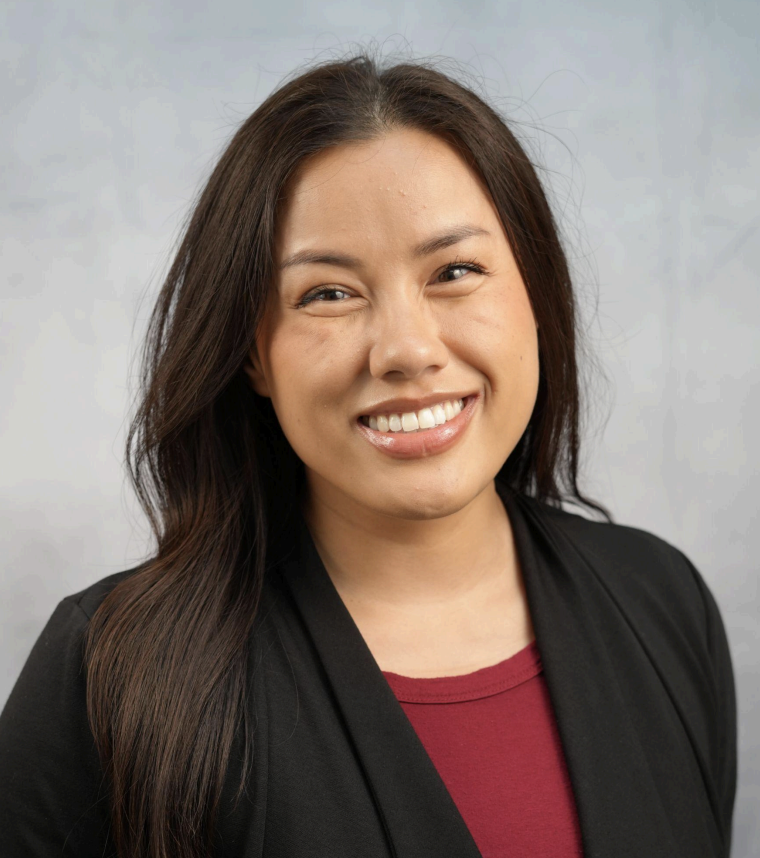
Lily Gates (she/her) is a senior undergraduate student at the University of Maryland, College Park, pursuing a B.S. in Social Data Science with a focus on psychology. She previously earned a B.S. in Elementary Education from the University of Maryland and spent several years teaching in a variety of educational settings, including inclusive special education classrooms and dual-language immersion programs. These experiences sparked her interest in addressing academic, socio-emotional, and systemic disparities through research and data-driven advocacy. Her current research explores how social and environmental factors—such as family dynamics, education, adverse childhood experiences, and trauma—shape development and overall well-being. Lily plans to pursue a Master’s and/or Ph.D. in psychology, with a focus on psychopathology, education, and socio-emotional development across the lifespan. She is particularly interested in applying quantitative methods to advance equity in mental health and education.
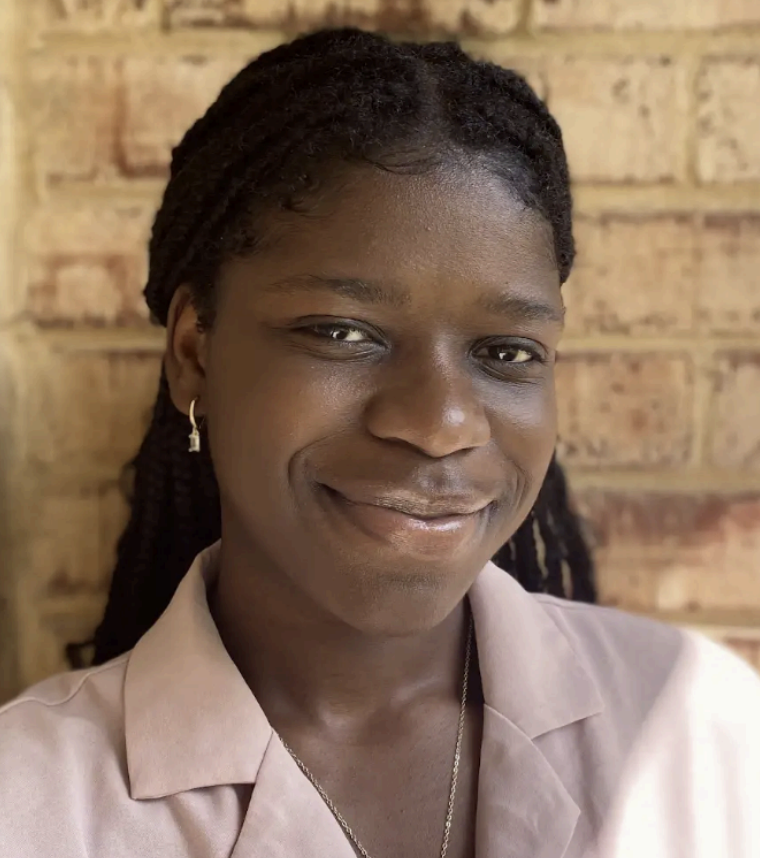
Stella Alumonah is a sophomore at the University of Maryland, College Park. She is from Baltimore County, Maryland, and is an active member of the Black Engineers Society. She majors in Electrical Engineering and plans to specialize in signal processing and control systems. In particular, she is interested in research that focuses on their applications in the biomedical and medical device industries. Through the REACH program, she aims to build a solid foundation in research skills and the field of signal processing in neural systems. This fall, she joins the QUEST Honors Program, where she looks forward to working in multidisciplinary fields and developing engineering skills to create real-world impact. In the future, Stella hopes to pursue a master's or doctoral degree in Electrical Engineering.
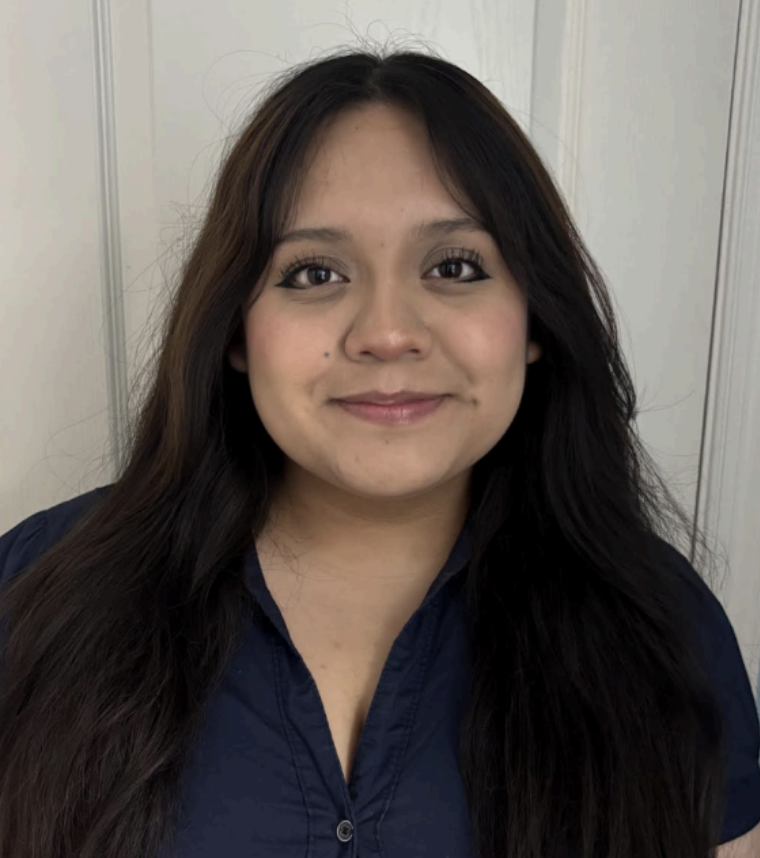
Nadia Lopez is a senior at the University of Maryland, College Park. She majors in Hearing and Speech Sciences and is originally from Silver Spring, Maryland. She is an active member of CLISO and volunteers with Maryland Mentor Corps, where she supports local students through mentorship. After completing her undergraduate degree, she plans to pursue a Master’s degree in Speech-Language Pathology, with the goal of becoming a licensed Speech-Language Pathologist. She is passionate about making communication accessible and inclusive for everyone. Nadia’s current research interests include language development, bilingualism, and addressing disparities in the field of Speech-Language Pathology.
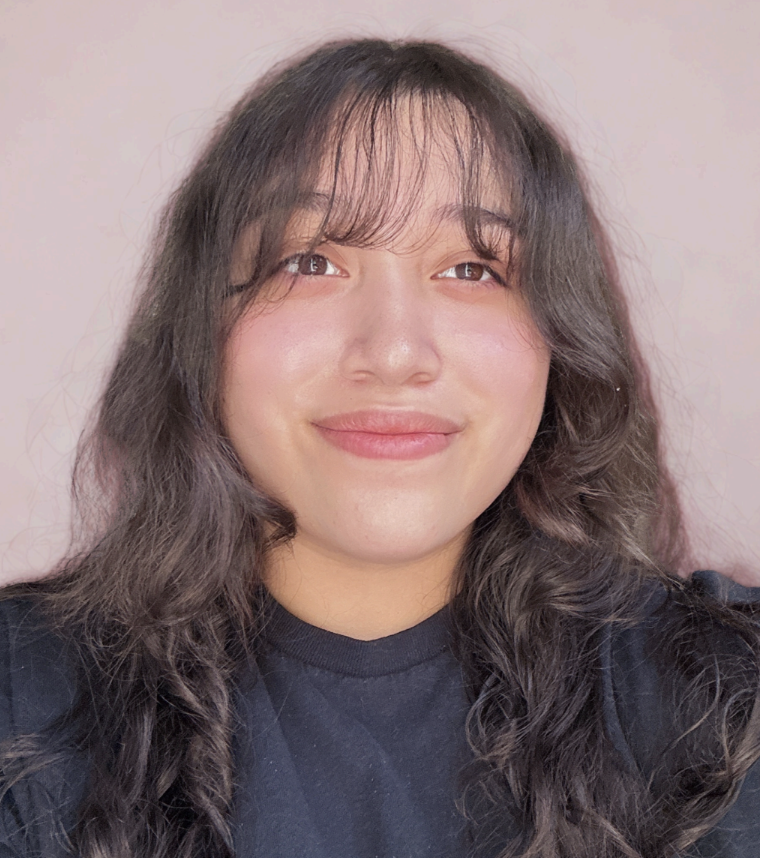
Catherine Smith is a rising sophomore at the University of Maryland, College Park pursuing a pre-major in Biocomputational Engineering. Her academic interests lie in developmental neuroscience and genetics with a particular focus on computational methods and emerging technologies. As an avid coder, Catherine enjoys combining her programming knowledge with her curiosity for the biological and neurological sciences. She also has a deep enthusiasm for working with children and serves as a math instructor for K-12 students in her hometown of Waldorf, Maryland. Looking ahead, she hopes to integrate her technical background with her fascination for neuroscience and biology to drive innovation in the biotechnology field. She also plans to pursue a graduate degree in computational neuroscience while actively participating in research. Through the REACH program, Catherine will contribute to studies in Dr. Romeo’s LEAD Lab, focusing on early brain development.

Laila Carroll is a rising Sophomore at the University of Maryland, College Park. She is a Media, Self, and Society Scholar and a Neuroscience Major. She is from Baltimore, Maryland. In the future, she hopes to explore the intersection of AI and mental health care, particularly in underrepresented communities. She is interested in leveraging predictive analytics to improve preventative care strategies. Moreover, she plans to advocate for policy development that ensures equitable deployment of AI technologies in global health systems. She plans to pursue a Doctoral degree in Medicine and, after residency, determine what specialty she would like to practice.
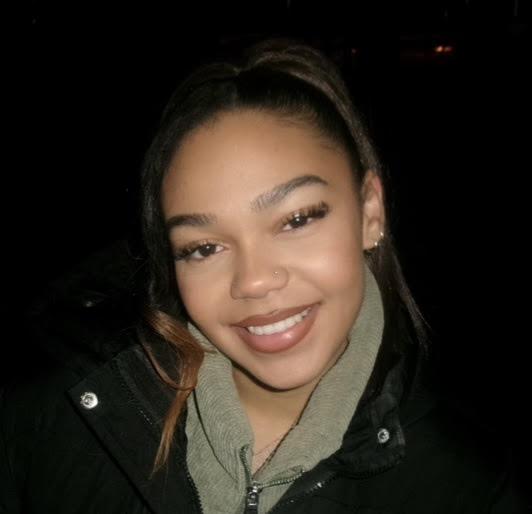
Gina is an undergraduate junior at the University of Maryland, College Park. Raised in Frederick, MD, she is majoring in Hearing and Speech Sciences and minoring in Spanish, with plans to pursue a career in pediatric speech-language pathology, and the additional plan to become a professor later in her career. She is particularly interested in therapy approaches for multilingual individuals and those with cochlear implants. Gina is also passionate about global advocacy in the field; in the summer of 2025, she studied abroad in Ghana, her father’s place of origin, to promote awareness and knowledge of speech-language pathology. On campus, Gina is actively involved in leadership and service. She is a peer coach with SIGNA (formerly a peer mentor), serves as chair of outreach and service learning for the CLISO club, works as a research assistant in the Language Cognition Lab, and previously participated in the Summer LEAP program.
Alumni:
Recent Events:
REACH spends a lot of time thinking of ways to provide experience to those within the program and promote team bonding. There have been many fun and educational opportunities to participate in. It’s a great way to not only get your name in the field, but also associate yourself with people of the same crowd. Look below for some of the events that have taken place just this last Summer!
2025 Summer Poster Session:
This summer, REACH students dedicated themselves to their research projects. At the end of the program, we celebrated their accomplishments with a Summer Poster Session. Students presented their work to BSOS faculty, gaining valuable experience in sharing their research and presentation skills. Each student designed their own poster and took part in a recognition ceremony marking the completion of their first year in the REACH program—officially becoming alumni!
You can explore REACH student research under the “Student Research” tab.
2025 Eppley Ropes Course:
To kick off Summer 2025, we organized a team-building day at the Eppley Ropes Course shortly after moving into campus housing. Both REACH and SRI students took part in the event, supporting one another as they stepped out of their comfort zones and embraced the challenge. The day featured a variety of engaging activities and games, culminating in the Ropes Course experience pictured here.
2025 Museum Outing:
REACH enjoyed a social outing into DC this summer! They attended the Hirshhorn Art Museum and the Museum of Natural History. Some students enjoyed exploring DC as well as seeing what the different museums have to offer.
2025 Move In:
REACH kicked off its 3rd year with a small community building activity the night of move in. They enjoyed learning more about who they would be living with all summer as well as creating unique posters to place on their doors!
2024 Summer Research Scholars Social:
We gathered at the Hotel at the University of Maryland to meet fellow researchers from other research programs. These included a collaboration with SRI (Summer Research Initiative), STAR (Summer Training And Research), ADAPT (Aging, Diversity, And Professional Development), and more!
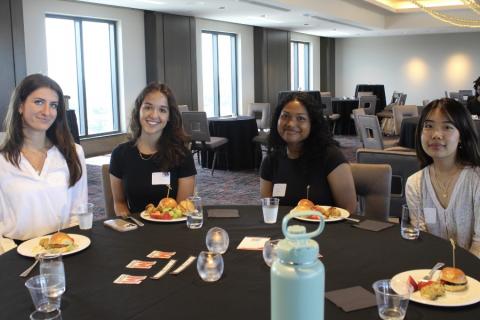
2024 Eppley Ropes Course:
Upon moving in the housing obtained for Summer 2024, we decided to do the Eppley Ropes Course as a team bonding exercise. Not only did REACH participate, but so did SRI. Students were secured and encouraged to face their fears and experience this unique opportunity. This day involved many fun games and activities, followed by the Ropes Course photographed here.
2024 Summer Poster Session & Ceremony Celebration:
The REACH students as well as the SRI students worked hard on their research all Summer. When we reached the end of the program, we hosted a Summer Poster Session. This is where students got to talk to faculty from the BSOS department as well as practice their presentation skills to really showcase how much they learned over Summer while working on their research. They created their own posters, and participated in a ceremony indicating they had completed their 1 year in the REACH program and became alumni! Congrats to our first cohort photographed below!
Student research done in REACH can be found under the "Student Research" tab.
To read more about our poster session, click here.
We also do many more activities, seminars and workshops throughout the year listed here:
- Terpzone Bowling
- Financial Literacy Session
- Academic Writing Workshop
- McNair Poster Presentations
- Graduate Student Panel
- Prepping Your Poster
- Letters of Recommendation Workshop
- Presenting Your Social Science Research
- Funding Your Next Summer of Research
- And more!
Who should apply?
We are looking for Applicants who:
- Want to learn about research!
- Fit the NIH definition of “Underrepresented.”
- This is dependent on your gender, identity, race, disability, SES status, and more.
- Find more info listed below about the definition of “Underrepresented.”
- Have diverse academic backgrounds
- Not just HESP Majors.
- We accept multiple STEM majors, special education majors, Health Sciences majors, and more
- If you have any questions about if your major qualifies please feel free to email us at umd-reach [at] umd.edu
NIH Definition of Underrepresented:
- Individuals from racial and ethnic groups shown to be underrepresented in biomedical research
- Individuals with disabilities
- Individuals from disadvantaged backgrounds, defined as those who meet two or more of the following criteria:
- Were or currently are homeless
- Were or currently are in the foster care system
- Were eligible for the Federal Free and Reduced Lunch Program for two or more years
- Have/had no parents or legal guardians who completed a bachelor’s degree
- Were or currently are eligible for Federal Pell grants
- Received support from the Special Supplemental Nutrition Program for Women, Infants and Children (WIC) as a parent or child
- Grew up in one of the following areas
- A U.S. rural area, as designated by the Health Resources and Services Administration (HRSA) Rural Health Grants Eligibility Analyzer (https://data.hrsa.gov/tools/rural-health),
- A Centers for Medicare and Medicaid Services-designated Low-Income and Health Professional Shortage Areas (qualifying zip codes are included in the file). Only one of the two possibilities in #7 can be used as a criterion for the disadvantaged background definition.
Student Research:
Click on the tabs below to learn about each cohorts research presented by our students!
